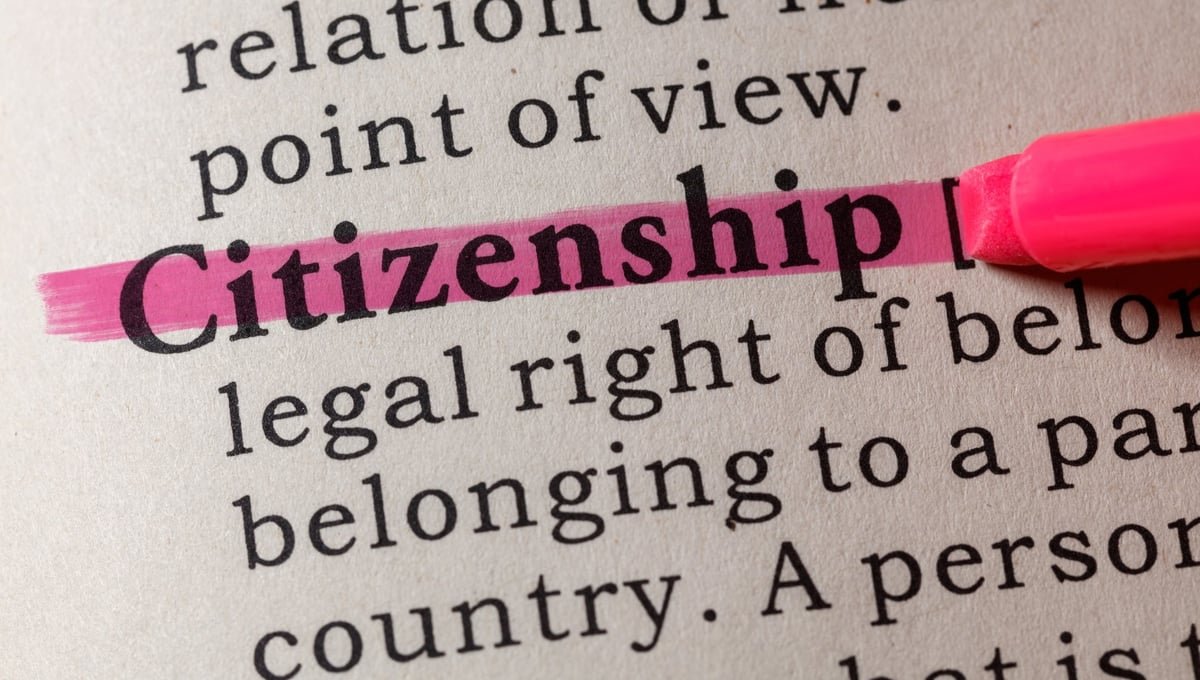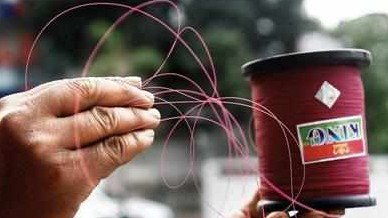As a trainer, I regularly interact with a diverse cross-section of people during workshops on Democracy and the Indian Constitution — with youth, women and men of Nomadic and Denotified Tribes (NT-DNT), Adivasi, and indigenous communities. I often ask them the question of what are their priorities. Their responses include managing their home, solving their financial issues, having a career, providing safety and opportunities for their children, building a home, accessing development and so on. Matters of citizenship, however, are rarely mentioned.
Is citizenship — its access, participation, and performance — ever a priority in our aspirational thoughts? Are we able to prioritise citizenship among the myriad of other responsibilities that we handle?
I, based on my lived experiences as a woman from the criminalised and persecuted NT-DNT community, believe that citizenship is not just a responsibility and performance, but something that needs to be aligned with the ethics of Democratic and Constitutional values. It is something to be performed at a larger scale, as given to us by the feminist statement “The Personal is Political”. How we live our personal lives, and how we make sure that the country functions constitutionally, and with accountability and monitoring towards whether human rights and fundamental rights are accessible to the last person in the social hierarchy, is part of being an active citizen.
In the context of vulnerable populations, citizenship is also a journey from dishonour to honour. This is especially true for Nomadic and Denotified Tribes (NT-DNT), who were declared criminals in 1871, by British rulers as retribution for their strong resistance to colonial rule and for their role in the Indian freedom struggle. The subsequent historical injustices, persecution, landlessness, resourcelessness, and vilification of their ways of living — their culture, languages, food habits, clothes, livelihoods, and even looks — have created a deep identity crisis, where they are made to feel dishonour in their own identity and existence. In a democratic country like India, for NT-DNT populations, the journey of accessing their citizenship is a journey of reclaiming their honour.
These are some examples of NT-DNT communities to give readers an idea of their vast diversity, unique occupations, expertise and also crushing vulnerability: Vaidu (make and sell medicines on roadsides), Nathpanthi Davri Gosavi (beg by showing pictures of gods, experts at geographical routes), Nandibailwale (bring the decorated bullocks used in many religious functions), Potraj (perform their folk-dance consisting of on roads and ask alms in return), Berad (hunter-gatherers), Ghisadi (make iron tools and weapons by hand), Kolhati (acrobatic performers), Pardhi (hunters), Gondhali (perform in religious functions), Vadar (work with stone and soil), Bahurupi (performers, record keepers), Saap Garudi (expert snake keepers and performers), Vaghya Murali (religious performers), and so on.
Their journey to citizenship is one fraught with barriers. Disasters, climate change, economic crises, social and political insecurity, appropriation of their cultural and intellectual property, false allegations, severe sexual violence and mob lynchings are almost constant experiences for NT-DNT communities. Their experience of poverty, hunger, mental health distress, sexual reproductive health concerns, and gaps in access to education, healthcare, sanitation and other civic facilities — are all at a much more severe plane than that experienced by any other marginalised communities; this is due to the added layers of criminalisation, landlessness, homelessness, and resulting endangerment of their languages, cultures and very existence.
The yawning gap of political dignity and accessibility for NT-DNT communities plays a major role in this. There are not more than a handful of political representatives from these communities — whose number is close to 10% of India’s 1.4 billion population — at any level of government, from local to national. This situation is not only about political representation but is indicative of the very low access to social capital and political courage of these communities. It is not that the communities themselves lack courage; it has been eroded. There is regular news of NT-DNT members facing mob lynching, murders and beatings to death for simply asking for their Constitutional rights; in this situation, standing for elections is a far-off dream. In one study (Motzhafi-Haller 2011), it was found that while most did not possess any other official documents, many did have voting cards. However, this did not guarantee any kind of political leverage; political leaders would give them voting cards during elections, which would be taken back after the voting period. There are no studies regarding this, but based on my observations over the years, not a single NT-DNT name has featured as a member on the executive committees, spokespersons, or state committees of any political parties — except for maybe one or two parties that have been formed by progressive Dalit movements; they don’t even find a mention in party manifestoes or speeches. Without political access, there cannot be the journey of accessing citizenship in a true and equal sense.
During work through my organisation Anubhuti, and personally, as a trainer and researcher with over 25 different NT-DNT identity communities across the state of Maharashtra, and through countless interactions with my family, community leaders, youth, and women of these communities, several recommendations for improving the political participation and citizenship access of our people have come up.
In the context of the ongoing elections in India, we present them here in the form of a manifesto for NT-DNT communities. They have emerged during interactions with more than 20000 NT-DNT persons — carried out in the context of disasters like Covid and floods, and during regular work in areas of education, healthcare access, sexual reproductive health matters, mental health issues, getting documents made and housing rights.
The NT-DNT Manifesto:
Nationwide Census to separately count NT-DNT populations. Without this data, there are many obstacles to effectively planning and implementing budgetary provisions for their health, mental health, education, disaster relief, housing rehabilitation or any other support.
Laws such as Wildlife Protection Act, 1972, anti-begging laws, Drugs and Cosmetics Act, 1940, Drugs and Magic Remedies (Objectionable Advertisements) Act, 1954 and so on, tend to further criminalise NT-DNT populations, who work and live closely with plants and with animals. Political will is required to revisit these laws and their clauses, to be aware and considerate of NT-DNT populations for whom these occupations connected to plants and animals are their traditional livelihoods.
Mob lynchings, sexual violence and atrocities are commonly faced by these communities. However, relevant laws like the SC/ST Atrocities Act do not include NT-DNT communities. Decision-makers need to reconsider how NT-DNT populations may be provided special protection against atrocities and human rights violations.
While migration is part of the culture of NT-DNT communities, many families wish to settle down, aspiring for education, access to resources and opportunities for development for their children. Their rehabilitation is key to their social and political stability. Decision-makers need to take ethical political responsibility and make efforts on priority for the rehabilitation of NT-DNT communities, with land and housing rights.
There are many labour laws in India for the safety and rights of workers, such as the Sexual Harassment at the Workplace (Prevention, Prohibition and Redressal Act, 2013) for safe workplaces. However, these are not accessible for nomadic women, children and men, who work in such informal occupations as begging, performing on roads, and selling wares and services door to door. In such occupations, there are even more severe chances of harassment and exploitation because of the extreme vulnerability and the nature of work that is carried out directly in the open and is so informal that it is very difficult to organise. Lawmakers, policymakers and implementers need to consider how to make these laws and policies more accessible and accountable for the unique reality of NT-DNT occupations; and how they can create support systems and sensitivity for these workers.
Special budgetary and implementation provisions need to be made for disaster-affected NT-DNT families since they are one of the highest at risk due to floods, heavy rainfall, etc. as they live on risky lands, living directly in the open and in tent homes, which are susceptible to any disaster and can lead to extreme losses. Decision-makers and service providers need to pay focused attention to emergency, accessible, and dignified medical assistance, healthcare, shelter, food, safety, and other provisions and benefits during disasters, to reach NT-DNT populations.
The provisions of the Mental Healthcare Act 2017 need to be implemented keeping in mind the needs of these communities who are more at risk of suffering mental distress due to historical injustices and face disproportionate barriers – of awareness, language, social differences and courage, in accessing mental healthcare.
NT-DNT populations do not possess identity, address and other documents at a very large scale. This is due to various reasons including their nomadic lifestyle, their caste identity changing from state to state, criminalisation, being neglected by relevant administrative officials, and so on. Due to lack of documentary proof, they become ineligible for disaster benefits, schemes for subsidised food, education, health, toilets, housing, admission, scholarships and most other basic amenities. Sensitive and proactive political and administrative will is required to support these communities to get their documents made.
There needs to be accountability of all relevant decision-makers in whether NT-DNT populations feature in the country’s budgetary planning and provisions; for allocations and implementation for accessible, dignified, accountable services, along with monitoring of budgetary provisions for education, sexual reproductive health rights, housing, culture, art preservation, language preservation and various other needs.
Directives to be given to the police to be sensitive towards NT-DNT communities, to strictly not carry out arbitrary arrests, detentions, and custodial violence against them, and also be sensitised to provide extra attention towards NT-DNT families living in their jurisdiction.
These can act as a reference point for political parties, elected leaders, policy drafters, and civil society — as direct voices from the community, as their efforts to participate and perform as citizens.
Deepa Pawar is Managing Trustee and Founder Director, Anubhuti Trust




